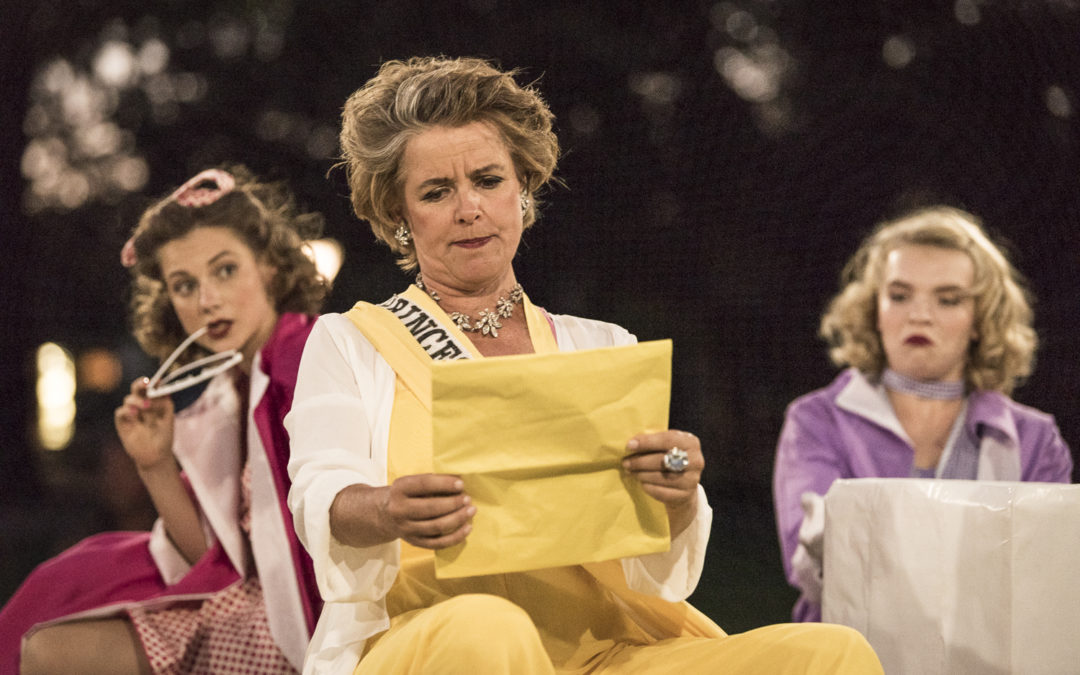Coming into their fourth year, Melbourne Shakespeare Company’s fast-paced, lively and vibrant musical takes to Shakespeare are consistently hilarious and unique. But their takes on the more obscure plays, buried in the back of collected editions and rarely seeing the light of day, are consistently spectacular. And like their previous Comedy of Errors, Love’s Labour’s Lost takes the chance of being the defining take many people will ever see on the play and utterly own it.
Love’s Labour’s Lost follows a court of ‘Melbournian’ socialites as King Ferdinand gathers with a group of lords, swearing to remain celibate and avoid any contact with women for three years to devote their lives to study; a promise which lasts all of three days. Through misplaced love letters, the Queen – here the Princess of Perth – and her court quickly find out their feelings, and join messengers, warrior expats and country townspeople to play with their secrets.
Within the script of one of Shakespeare’s earliest comedies, it’s easy to see many of the characters as early blueprints for other plays, such as Kate from Taming of the Shrew or Rosalind from As You Like It. But here in each of the characters is something entirely their own, in a strong, tight ensemble that is hilarious across the board. Singling out performances becomes difficult when each becomes a scene stealer in their own right as they sing and dance between Elizabethan English and the latest pop songs. Benjamin Almon Colley’s musical direction and John Reed’s choreography combine into what is essentially a jukebox musical, and the cast completely sells it. They gossip with the audience from before the script begins, and dodge nearby dogs who manage to wrestle their way out of their leashes. Not unlike the Pop Up Globe performances, their engagement brings an exuberance to the performance that’s infectious.
With audience facing out every direction the entire performance around Karli Laredo’s simple yet effective arrangement of archways and minuture stages, there’s nowhere to hide when watching from the wings. Instead, staying in character while watching from nearby hills or peeping out from behind trees, there’s different little moments no matter where you turn, offering a unique performance both on different days and for each of the audience.
Marc McIntyre’s costumes are a bright, upbeat mix of pastels and patterns, working tongue-in-cheek puns into entire character concepts. Featuring boat shoes and summer shirts, pants stitched out of maps and a coastal disguise, they’re both unique to the production and flow into a similar mood to that of their sister show Twelfth Night, with a highly complementary aesthetic between both designers.
With comedy fast becoming their trademark, part of me is curious to see how Melbourne Shakespeare Company would approach a tragedy; though some of that may be an urge to see something like Macbeth done as a twisted, junkbox musical comedy. But another part is equally happy to return to see their next show reclaimed in all its jovial glory.

